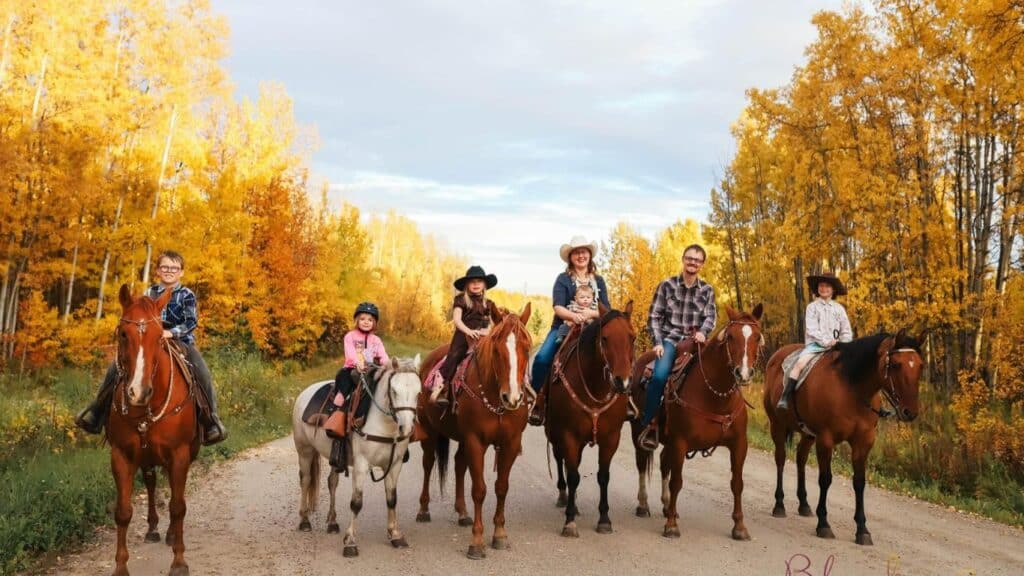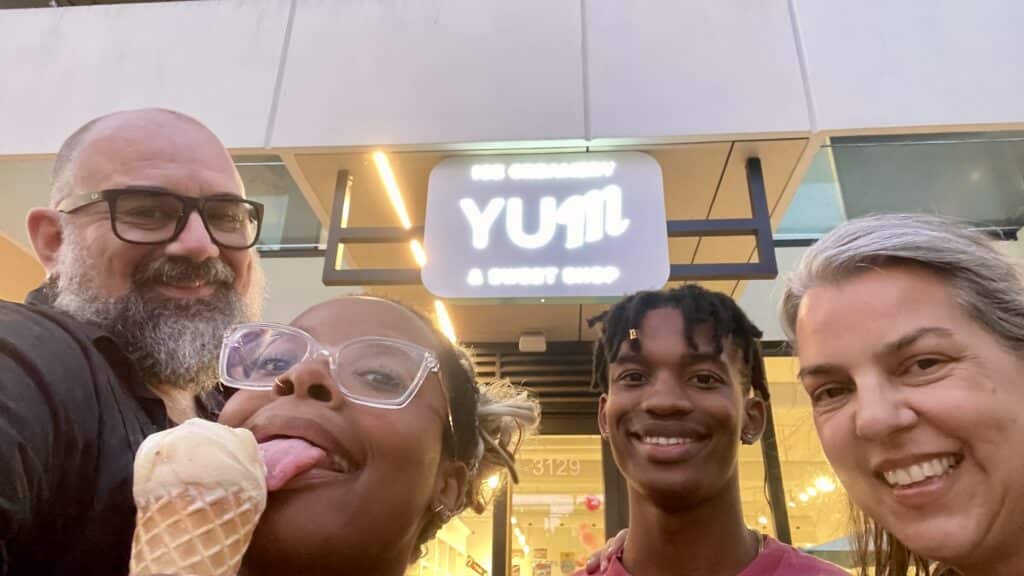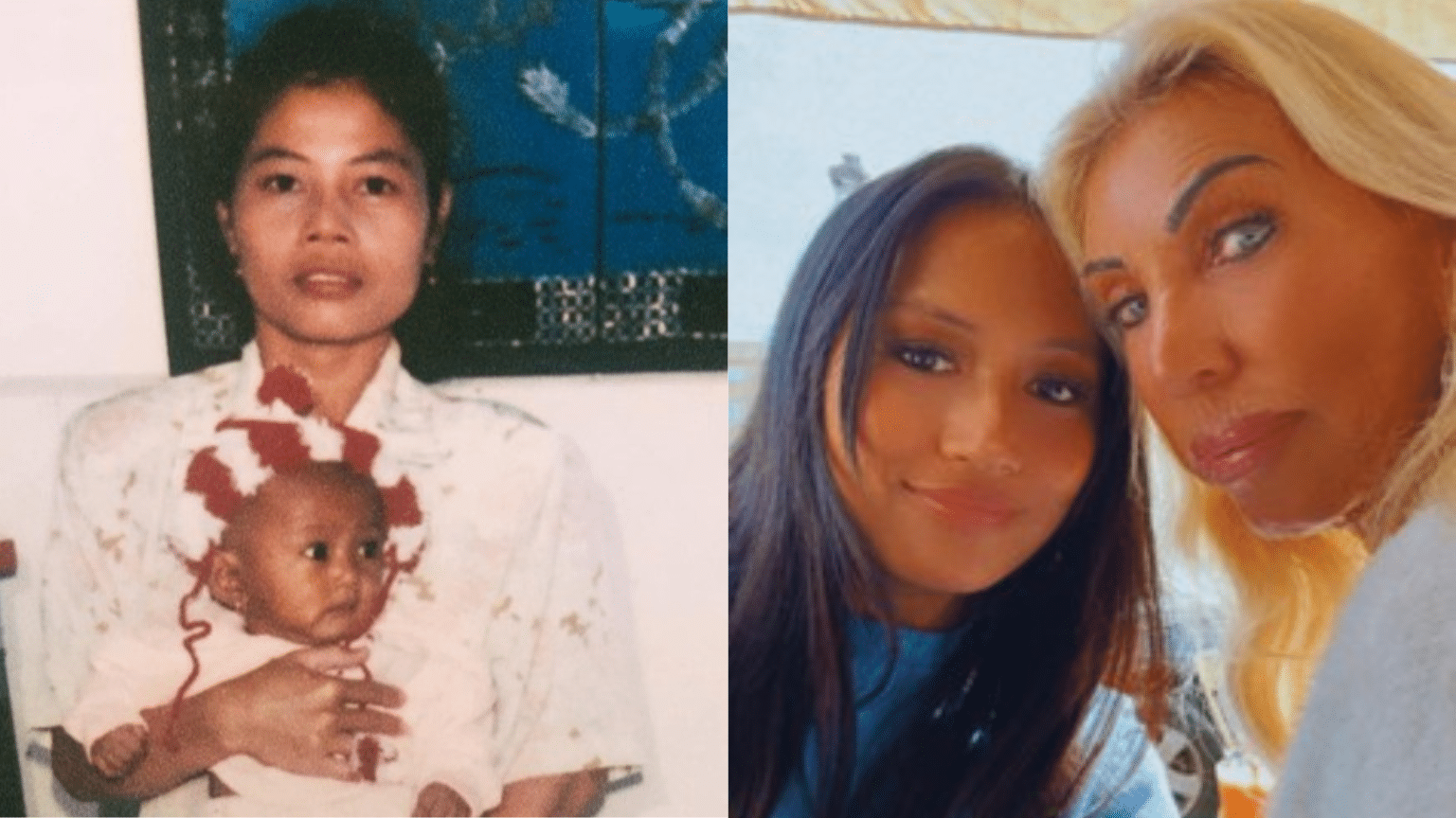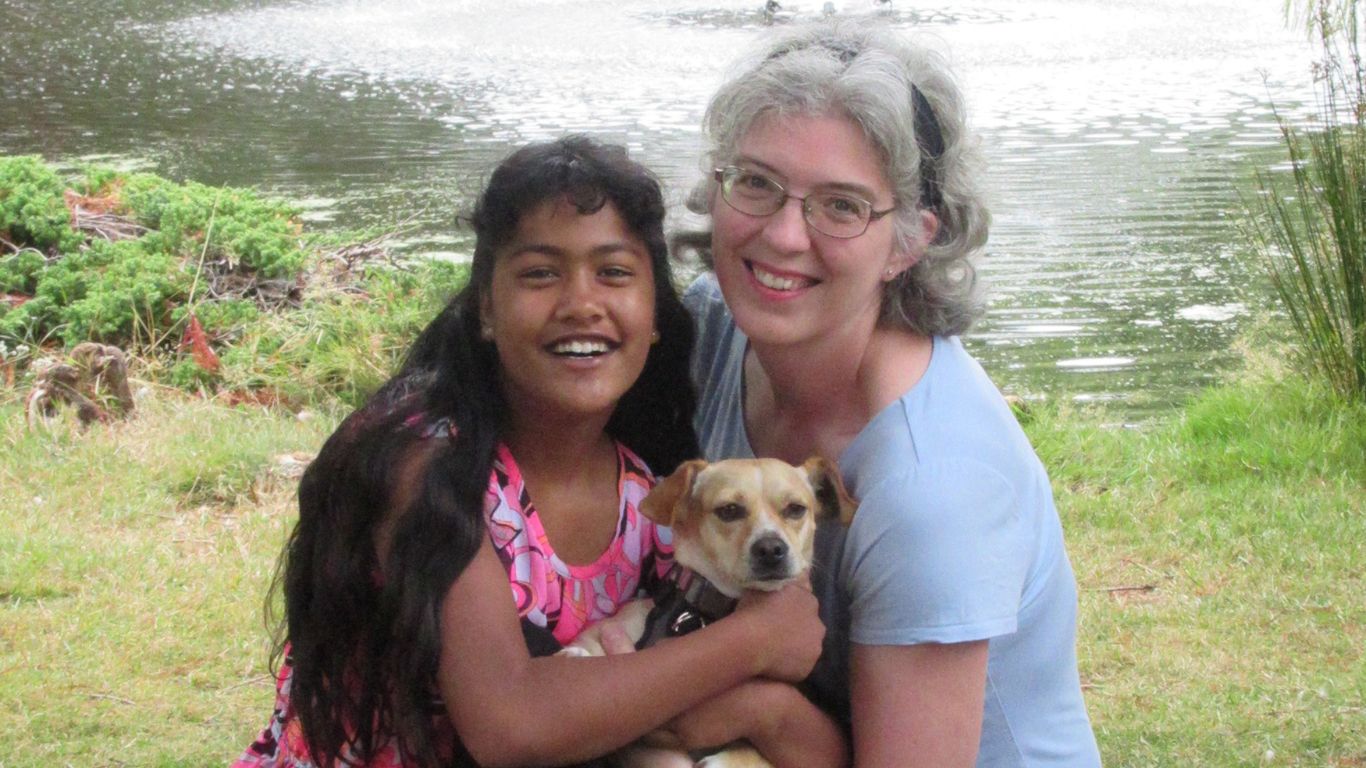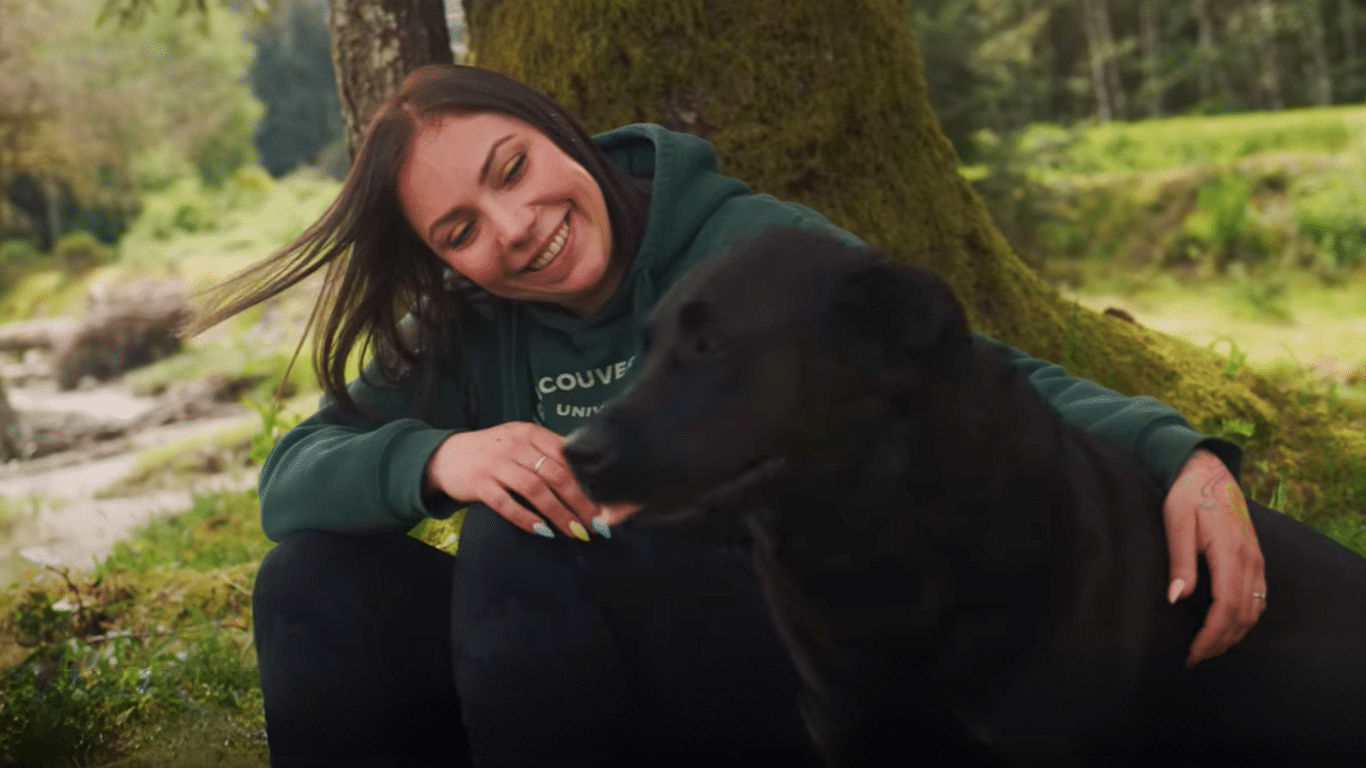Jamie and Tyler Giesbrecht always wanted a big family, but for a while it didn’t seem to be happening naturally. They started fostering, which turned into adoption, and today they have the big family they always dreamed of! This is their adoption story.
Can you briefly describe your family?
We are a farm family living in rural, Northeastern British Columbia. We had always wanted a large family, but after two medically disastrous pregnancies, we felt like that might not happen.
Tyler and I both felt the pull of foster care on our hearts, and that is what began our adoptive journey. Today, we have two biological children and three adopted children. We are a homeschool family, and we have fully embraced openness with the birth parents of our children, so our life looks different than most.
We have several special needs in our home, but we never let anything like feeding tubes slow us down. We love to camp, hike, explore the Yukon and Northwest Territories, and, of course, ride our horses! Our kids are often seen riding horses along the highway to the local Petro-Canada and around local landmarks. Our kids always keep us on our toes, but we cannot imagine life without them!
Can you tell us a bit about your experience with the adoption process overall?
We have learned so much through the adoption process, and we have grown in ways we never could have imagined. The legal process itself is quite a learning curve, and nothing about adoption is easy. Adoption has challenged us in ways that are hard to put to words, but we wouldn’t change it for the world. Tyler and I are very passionate about adoption, and so are our children! Our oldest says he hopes we adopt nine more kids!
What’s your best bit of advice for families considering adopting?
I would say that it is crucial to remember that the hard work of adoption does not end with the paperwork and the home study. Once you have a match, the real work has just begun. Children come from hard places, regardless of the age they are adopted at, and can have complex medical and behavioral issues.
I used to think that babies adopted from birth were exempt from things like attachment disorder, and this is completely false. Most adoptive families will face challenges at some point in their parenting journey, and it might be hard to find answers. You may deal with things no one else in your circle has experience with. It is extremely important to determine if you are ready to face these challenges, and it is also critical that you find support when you need it.
Adopted children have already had their primary attachment severed, and that is a great loss – it is our job as adoptive parents to make sure we are up to the task of meeting their physical, emotional, and mental health needs as they age. We must also be supportive as the child comes to grips with their past, and their severed relationship with the birth parent, no matter what age adoption happened at.
Can you tell us about one high point and one challenging point in your adoption experience?
A high point is easy. Every single time we have signed that paperwork at the end of the adoption residency period, when that child is forever ours and that can’t be changed, it is like we are walking on air. The feeling is incredible. There is nothing else on earth like it.
A close second would be being there for the birth of our most recently adopted son. We were able to cut the umbilical cord and spend the first night in the hospital with his birth mom. She would wake up to him, change his diaper, and then hand him to me to feed him. It was one of the most beautiful things I have ever done.
As for a challenging point, it would be a tie between the period when we were waiting for our first adoptive daughter’s case to be finalized in court, which would allow her to be adopted. There were a lot of moving pieces, and we were really new to the system. It was nerve-wracking, and I was an emotional wreck. It truly was one of the most difficult times in our lives.
Another challenging time would be when our children were 5, 4, 2 and newborn. Our newborn (who we would later go on to adopt) was having ongoing and intense medical issues. She was hospitalized constantly (sometimes 14 hours away from our home) and wound up on a terrible nasal-gastric feeding tube that she pulled out several times a day. She would stop breathing and turn blue. We were so scared.
I was lugging around four kids who still all needed help with everything, as well as all the things we would need in the day (a feeding pump and bag, cans for formula, pH test strips, to name a few).
I distinctly remember sitting on a chair at the pool, totally exhausted. The baby was in a car seat with the pump propped up and feeding bag hooked around the top of the chair. Another child was having a melt down over having to wait for their turn at swimming lessons. I relented and said she could stand in the water up to her ankles right near me for a few minutes, only to have the lifeguard yell at me because I needed to be with her if she was in the pool. I felt truly alone then. That feeling continued until our baby’s health stabilized about six months later. This was a very difficult time for our family.
How as the Belonging Network made a difference to your family?
The belonging Network has made a difference in our family by being a community for us. They have resources, and host events in our area. We have gotten to know other families and have had other families reach out to us in difficult times. Our local the Belonging Network worker is a family friend and is always a shoulder for me to cry on. Brandi, thank you for all the times you have let me call you out of the blue to vent, cry, and occasionally laugh! The Belonging Network staff have celebrated our adoptions with us and have encouraged us along the way. Thank you, Belonging Network, for what you do!
Is there anything else you’d like to add?
If you are considering adopting, go for it! I’ve heard that less than 2% of people who consider adopting ever actually do. Adopt, and make the difference of a lifetime! Your life will never be the same, and neither will that of the child you adopt.

